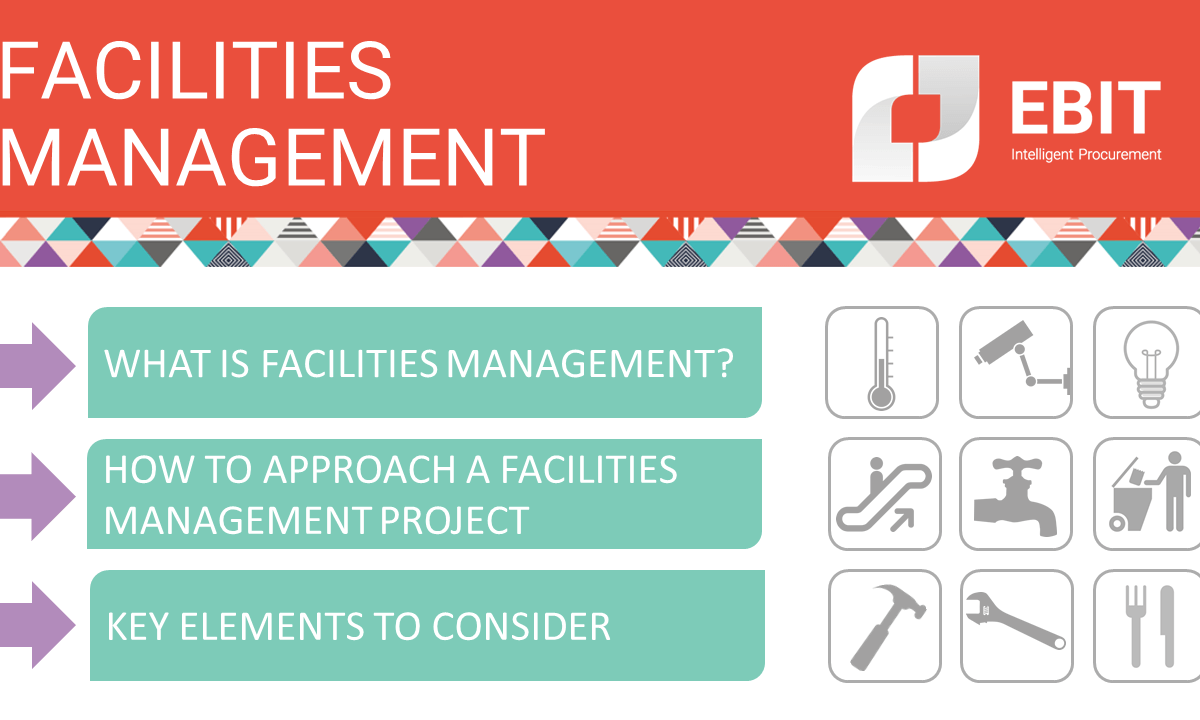Spend category highlight: Facilities Management
Facilities Management (‘FM’) is the process of managing a broad category of spend areas for a business, covering services and infrastructure to allow the business to function, and function efficiently. These spend areas range from landscaping and window cleaning through to the repair and maintenance of plant machinery. FM can be managed by multiple suppliers or consolidated into one provider, depending on which solution is the best fit for the business.
How to approach a Facilities Management project
The first stage with any FM project is to understand the business requirements and the process and contractual arrangements that are currently in place.
For soft FM categories (typically services, such as cleaning, waste collection, security), collecting data on the existing schedule and scope of works is relatively straight forward. Complexity increases when looking to understand if these are the most appropriate solutions for the fundamental business needs.
Hard FM categories (running and maintaining physical assets, such as lighting, air conditioning, escalators) will often be governed by legislative and industry rules. This means that the schedules are set to ensure legal compliance and adherence to minimum health and safety standards. Unless this is already under a consolidated management approach, it can be difficult to gather the data on what is done, by whom and at what rates.
Once you have an understanding of business requirements, you can define the most appropriate strategy and structure to meet these needs. Overlaying the current ways of working and contractual agreements will then build a roadmap of how to get to the future state.
A non-exhaustive list of elements to consider for any commercial review of Facilities Management:
- Asset register, including condition reports
- Preferred supplier list (PSL) with pre-agreed rate cards
- CAFM systems
- Warranties tracking
- Optimised planned preventative maintenance (PPM) schedules
- Controlled (and potentially capped) reactive maintenance costs
- Flexibility in contracts to allow for change within the contract term, i.e. removing waste collection sites if units are closed (temporarily or permanently)
- Consolidating categories into fewer providers can not only drive savings but also softer benefits as fewer invoices need to be processed etc. This does not necessarily mean that the providers will carry out all services (they may well sub-contract for certain geographies or specialised equipment)
- Ongoing supplier management. Avoid leaving this until a contract renewal date is approaching – run constant communication and performance reviews to proactively manage this diverse spend area

Get in touch to find out how Ebit can help your business with payment processing.
